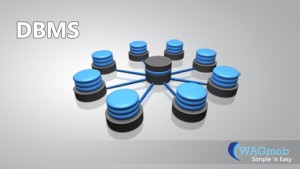 30. What is SDL (Storage Definition Language)?
30. What is SDL (Storage Definition Language)?
This language is to specify the internal schema. This language may specify the mapping between two schemas.
31. What is Data Storage – Definition Language?
The storage structures and access methods used by database system are specified by a set of definition in a special type of DDL called data storage-definition language.
32. What is DML (Data Manipulation Language)?
This language that enable user to access or manipulate data as organised by appropriate data model.
Procedural DML or Low level: DML requires a user to specify what data are needed and how to get those data.
Non-Procedural DML or High level: DML requires a user to specify what data are needed without specifying how to get those data.
33. What is DML Compiler?
It translates DML statements in a query language into low-level instruction that the query evaluation engine can understand.
34. What is Query evaluation engine?
It executes low-level instruction generated by compiler.
35. What is DDL Interpreter?
It interprets DDL statements and record them in tables containing metadata.
36. What is Record-at-a-time?
The Low level or Procedural DML can specify and retrieve each record from a set of records. This retrieve of a record is said to be Record-at-a-time.
37. What is Set-at-a-time or Set-oriented?
The High level or Non-procedural DML can specify and retrieve many records in a single DML statement. This retrieve of a record is said to be Set-at-a-time or Set-oriented.
38. What is Relational Algebra?
It is procedural query language. It consists of a set of operations that take one or two relations as input and produce a new relation.
39. What is Relational Calculus?
It is an applied predicate calculus specifically tailored for relational databases proposed by E.F. Codd. E.g. of languages based on it are DSL ALPHA, QUEL.
40. How does Tuple-oriented relational calculus differ from domain-oriented relational calculus?
The tuple-oriented calculus uses a tuple variables i.e., variable whose only permitted values are tuples of that relation. E.g. QUEL
The domain-oriented calculus has domain variables i.e., variables that range over the underlying domains instead of over relation. E.g. ILL, DEDUCE.